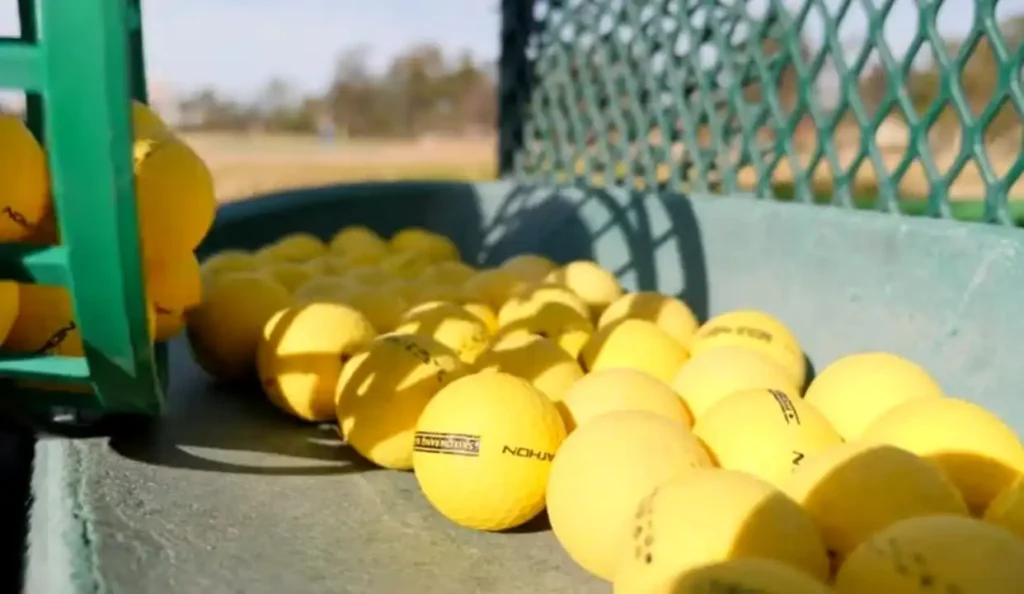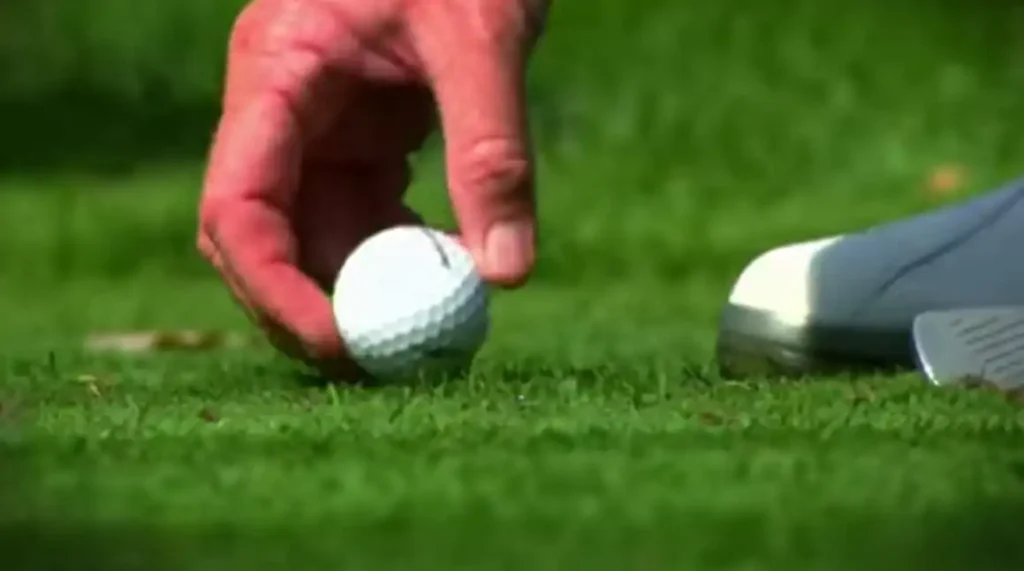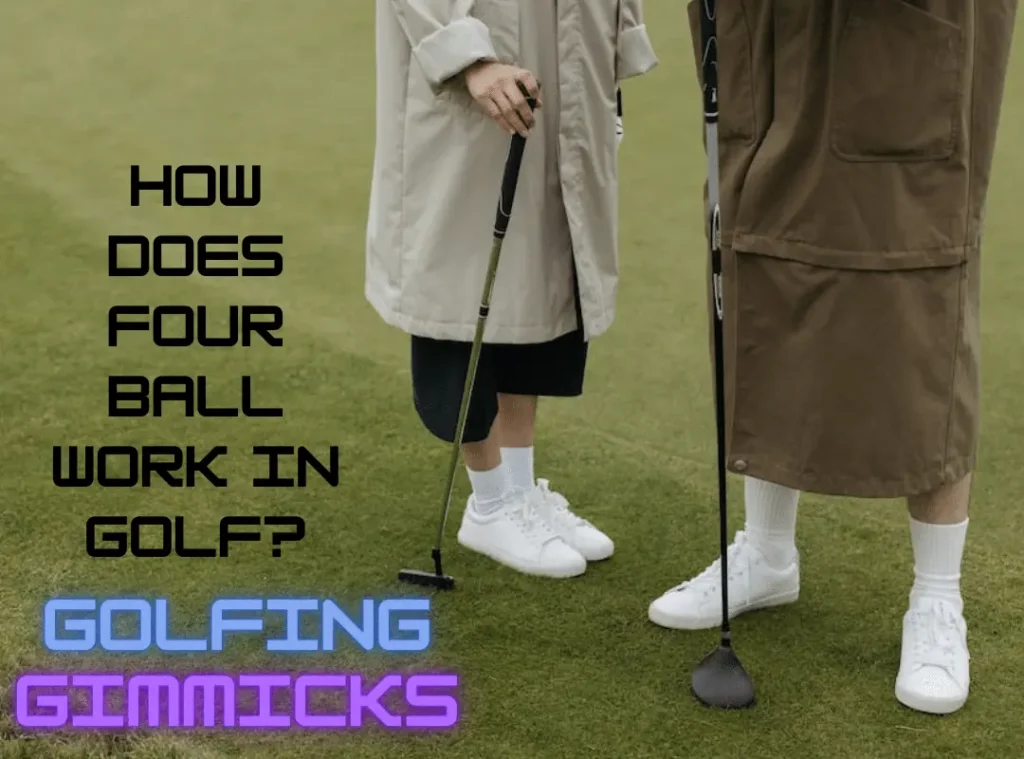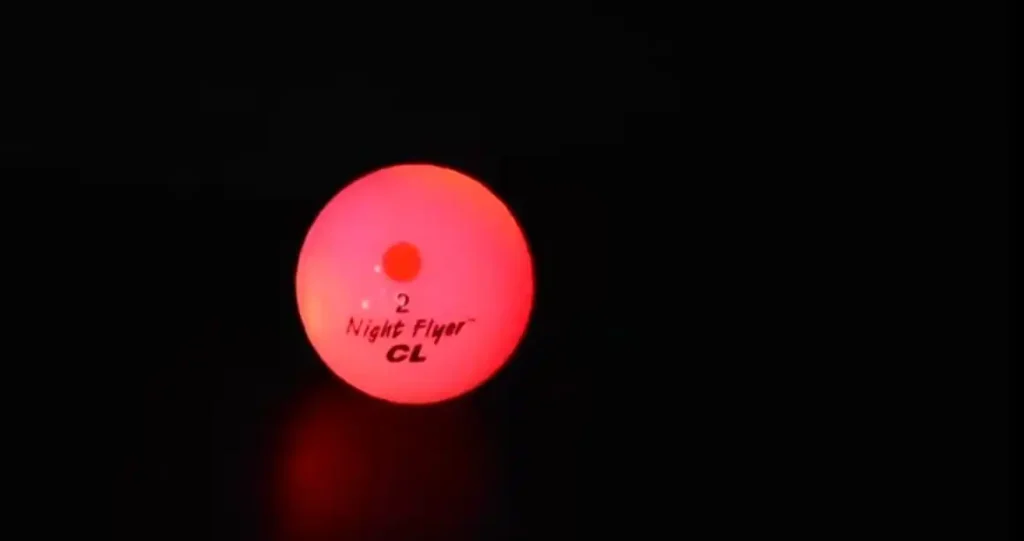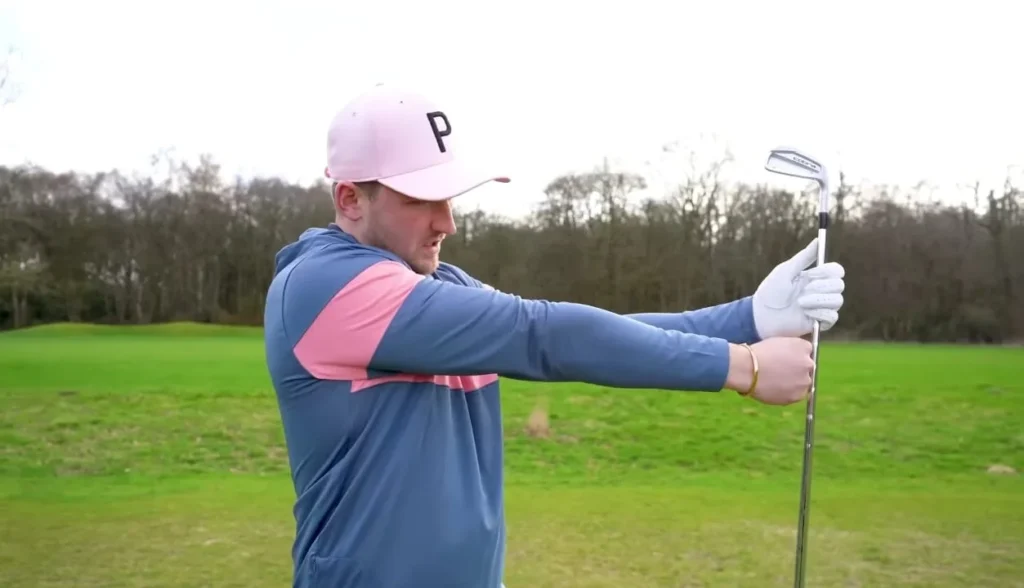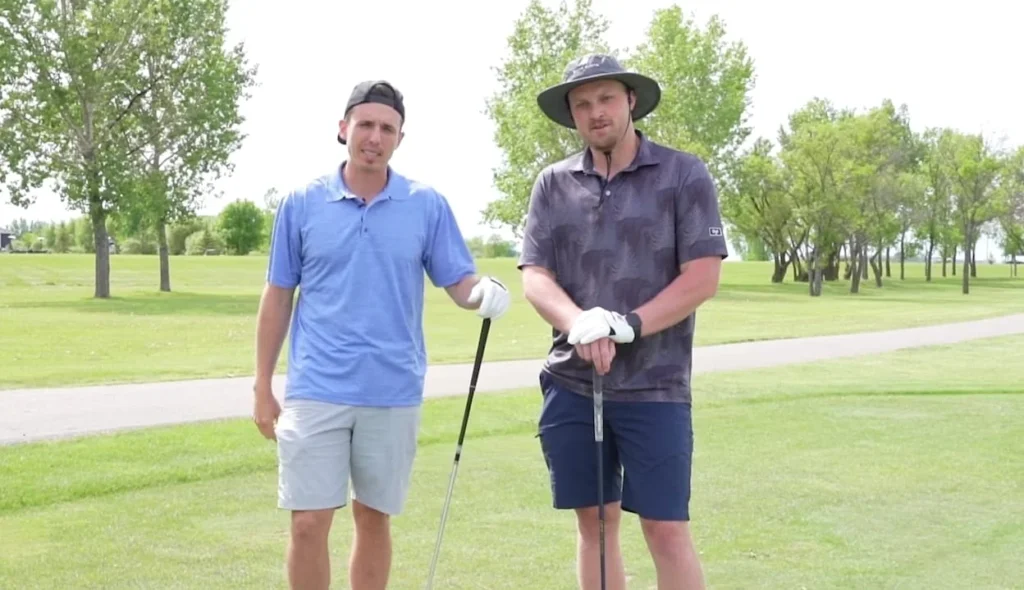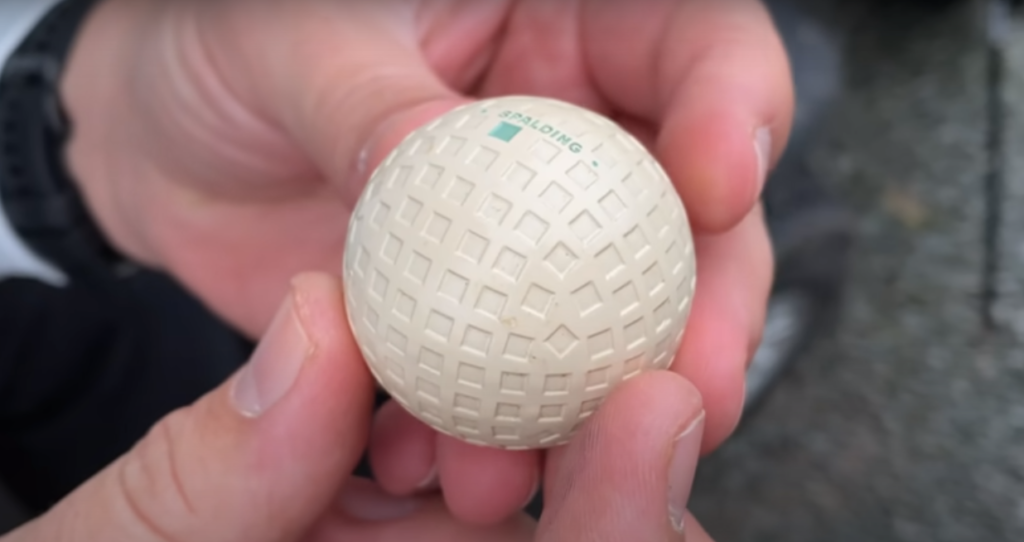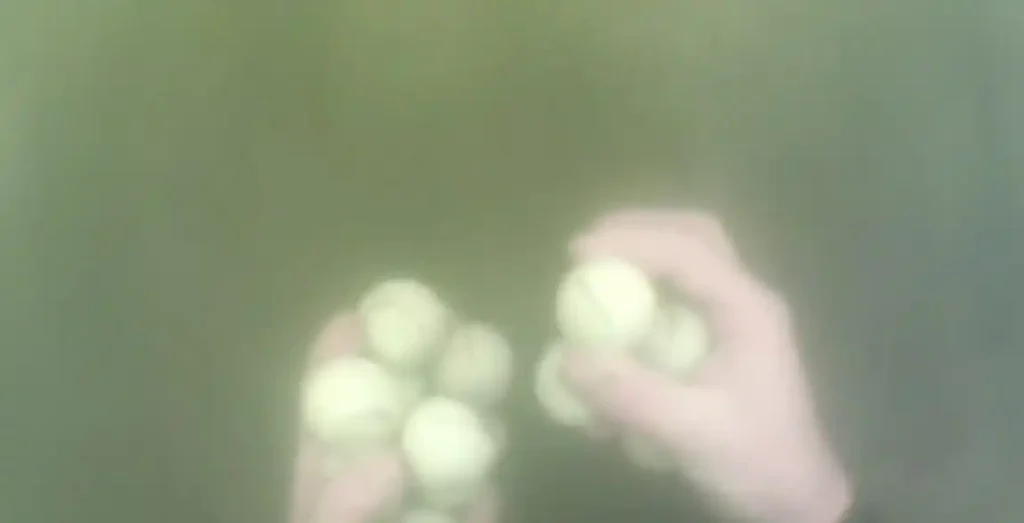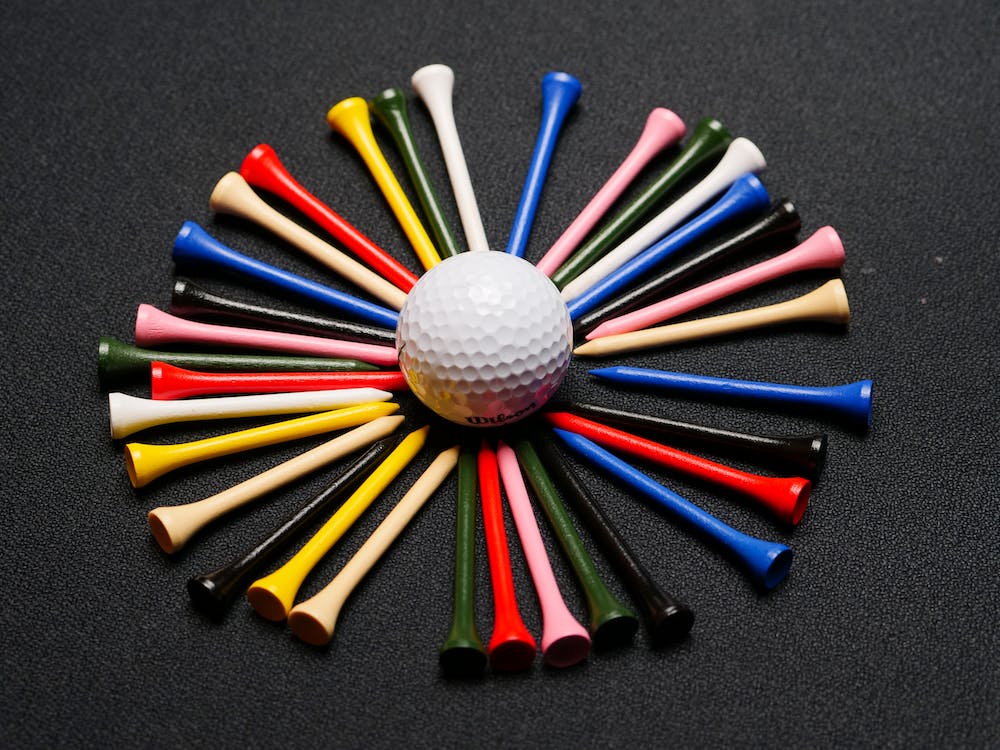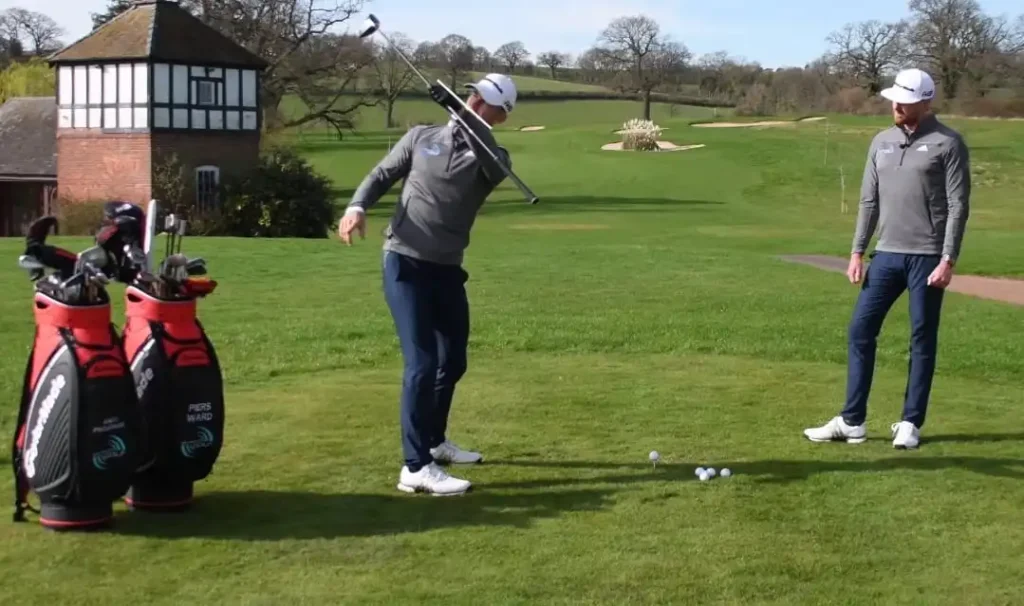Golfers often wonder if golf balls have a shelf life. Whether you’re an occasional duffer or a seasoned pro, it’s important to understand a golf ball’s lifespan. That’s why we’ll delve into a careful study of your golf ball’s longevity. Why do golf balls go bad with age? What makes these dimpled spheres wither over time? Also, we’ll share some tips for beginners to choose durable, quality golf balls to play with properly. That’s the only way to keep up your game.
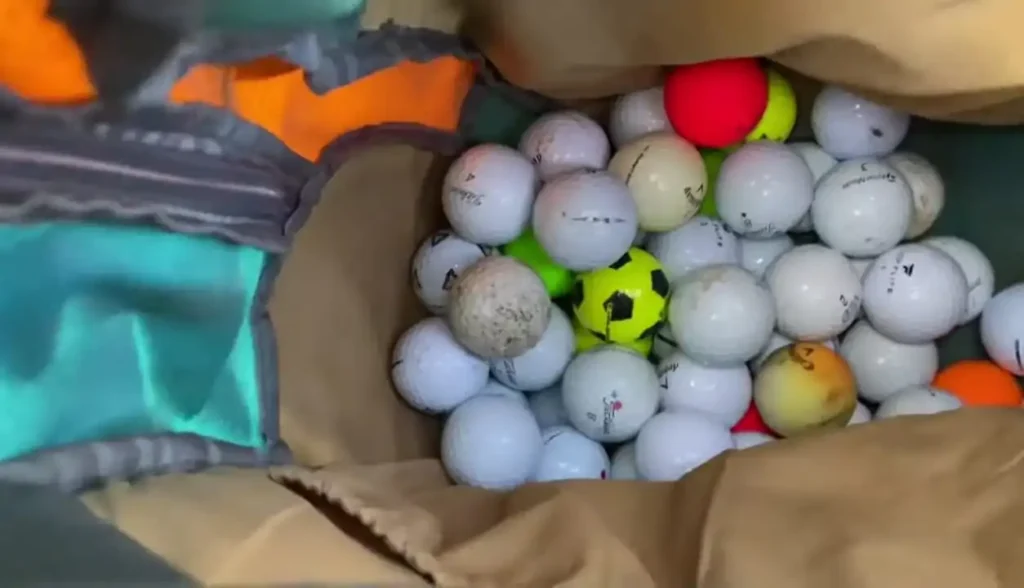
Do golf balls go bad with age?
The Composition of Golf Balls
Let’s examine the composition of golf balls before discussing their lifespans. We’ve previously explained the construction of a typical golf ball on Golfing Gimmicks. Well, here’s a quick recall of the inner segments of these wonderful accessories:
- Core: The core is the innermost layer of a golf ball and plays a significant role in its performance. Modern golf balls have either a solid rubber core or a softer, liquid-filled core.
- Mantle Layer: Above the core, there is a mantle layer, often made of synthetic rubber. This layer influences the ball’s spin, distance, and feel.
- Cover: The outermost layer is the cover, which is usually made of materials like Surlyn or Urethane. The cover affects the ball’s durability, control, and feel when struck.
- Dimples: Dimples on the surface of the golf ball are crucial for its aerodynamic performance. They help the ball maintain lift and reduce air resistance, allowing it to travel longer distances.
Do Golf Balls Go Bad With Age?
So, does age have any effect on a golf ball’s performance? Yes, the effects of aging do make your average golf balls go bad i.e., their performance is degraded over time. Golf balls possess an exceptionally extended shelf life; manufacturers generally recommend five years as optimal performance time. Some golf balls even last for a decade if stored properly. But, after playing 7 18-hole rounds, you’ll notice that your golf balls have started to perform poorly. This decline in performance will be very slow and even unnoticeable at first, However, with time, you shall see that the golf ball has degraded beyond hope. So, when do golf balls go bad forever? We can say this permanent decline in performance emerges in a few years.
Factors Affecting Golf Ball Performance
Many key components come into play when considering how a golf ball performs, all of which contribute to its effectiveness. The following factors can make your golf balls go bad faster. So, how soon do golf balls go bad? It depends on these factors:
Environmental Conditions
Weather plays an integral part in golf ball play. Being exposed to extreme temperatures and humidity levels can have an enormous effect, particularly heat which causes its core to expand during flight; in contrast, cold temperatures render balls stiffer thus decreasing distance covered on flights and distance covered overall.
Frequency of Use
As soon as your golf ball hits the green for use, its wear and tear increases dramatically. Regular use may result in cuts, scuffs, or changes to balance that could eventually interfere with its performance on the green.
Quality of Golf Balls
Golf balls come in an assortment of brands and models to meet every player’s need and taste, offering something for every budget and experience level. Premium balls typically carry higher price tags due to being designed to outlive their cheaper alternatives by lasting longer.
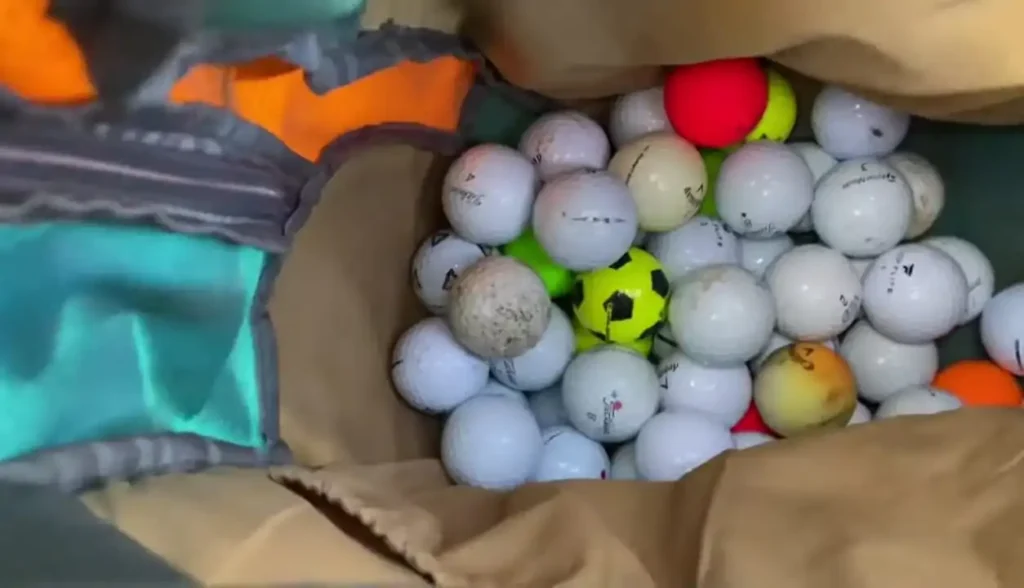
Signs of an Unreliable Golf Ball
Recognizing problematic golf balls is key for every golfer. Keep a keen eye out for visible damage, irregular shapes, or sudden losses of distance/control when striking them, as these signs could help ensure consistent play throughout your rounds.
- Damage: Do new golf balls go bad as well? Yes, cuts, cracks, or nicks on the cover do make brand-new golf balls go bad fast.
- Discoloration: Fading or yellowing of the ball’s surface indicates its death; you should consider getting a new one.
- Loss of shine: A once glossy finish becomes dull when a golf ball goes bad and needs to be put down forever.
- Lack of bounce: When do golf balls go bad? One answer to this question involves the lack of bounce. Reduced bounce means the golf ball isn’t healthy anymore.
- Inconsistent performance: When a golf ball doesn’t perform as well as before then you should deem it damaged for good.
- Hard feel: If you play with a soft golf ball and now it’s turned hard then it has sustained enough damage and now needs to be retired.
- Water absorption: Do golf balls go bad due to waterlogging? Yes, golf balls become useless after being underwater for a long time.
When your golf ball goes bad, you shouldn’t just throw it away. Read this amazing article on what to do with unused golf balls and how to repurpose them properly:
How to Store Golf Balls Properly?
If you wish to extend your golf ball’s lifespan and keep it running for a long time then consider storing the thing properly. So, you can help them last longer and maintain better performance by implementing these three simple solutions:
Cool and Dry Storage
When it comes to golf ball storage, ideal conditions include being stored somewhere cool and dry that shields them from direct sunlight. This helps preserve their integrity and performance over time. For extra safeguarding purposes, store your golf balls in airtight containers to protect them against environmental factors that might compromise their quality. This may reduce damage while protecting them against possible contamination from outside influences.
Rotate your Golf Balls
Don’t use your favorite golf ball again and again; give that sucker some time to breathe. If you play with the same golf balls consistently, they can wear out faster. To prolong their lifespan, rotate your golf balls regularly. This means using different balls during each round, which distributes the wear and tear more evenly across your collection. It’s particularly important for premium golf balls, as they can be more susceptible to damage.
Clean your Golf Balls
After a round of golf, clean your golf balls by using warm, soapy water and a brush or sponge. Gently scrub the dirt and grime off the ball’s surface. This will help maintain their appearance and ensure that dirt and debris don’t accumulate in the dimples, affecting their performance. Use a clean towel or handkerchief to clear mud, dirt, or debris from the golf ball’s surface. Try using a toothbrush to give the sphere a thorough cleansing or watch this YouTube video.
How To Choose A Golf Ball For Beginners?
So, are you a beginner who wants to play with the right golf ball? Well, we can help you find the perfect golf ball for a nice, quick game of golf. Learn to go with durable, affordable, golf balls. Do not forget that a golf ball needs to suit your playing style. So, follow these simple suggestions to determine which golf balls are the best ones for you:
Consider your budget
Do golf balls go bad if they’re cheap? Generally, expensive golf balls offer more durability. But you shouldn’t invest in the most expensive golf balls available online. Consider your price range when shopping for golfing accessories; you don’t have to buy either the costliest or the cheapest golf ball available.
Compression
Beginners have a slower swing speed, so they should buy low-compression golf balls. These are soft golf balls, offering more distance for slower swings.
Dimples and cover materials
Golf balls have different dimple patterns and cover materials. Generally, a two-piece ball with a Surlyn cover is the best thing for beginners. It’ll provide the sort of durability you’re looking for as well as give you ample distance and control.
Distance vs. control
When do golf balls go bad with age? Well, it depends on your playing style; you need to realize whether you prioritize distance or control. You may choose to focus on hitting the ball straight and far; a distance ball will go a long way with a player like you. You may want added control around the greens, so choose a ball that offers more spin and control. Choosing the right ball will affect its lifespan.
Brands and models
Experiment with different brands and models before choosing the perfect golf ball for you. While some golf balls offer durability to professionals only, many golf balls are designed for beginners like you; we have discussed these golf balls (i.e., the illegal ones) on Golfing Gimmicks. So, go with the right brand. Buy different golf balls to try them all to find out which one suits you.
Buy in bulk
So, do new golf balls go bad? Well, they don’t usually go bad that easy. But you should still buy your favorite golf ball in bulk to keep it inexpensive. Make sure you have a constant supply of your favorite brand’s golf balls.
Ask for recommendations
Go online and ask this question to people, “Do golf balls go bad over time and which one should I prefer?” Don’t hesitate to ask people’s opinions so you can learn from their experiences. Pro golfers can offer valuable insights into which balls are the most suitable for you.
Demo days
Take advantage of golf demo days at your local store or golf course. These events will let you try out different balls on the range to see which one’s the best for your game.
Personal preferences
Do golf balls go bad over time? Well, ultimately, you have to deal with your golf ball going bad. Bear in mind that the best golf ball for you may come from personal preferences. Look at how each ball feels when you strike it and how it behaves on the golf course.
Practice
As a beginner, you will evolve with time. Be open to trying different golf balls as you improve to match your developing game. Go online and read people’s recommendations.
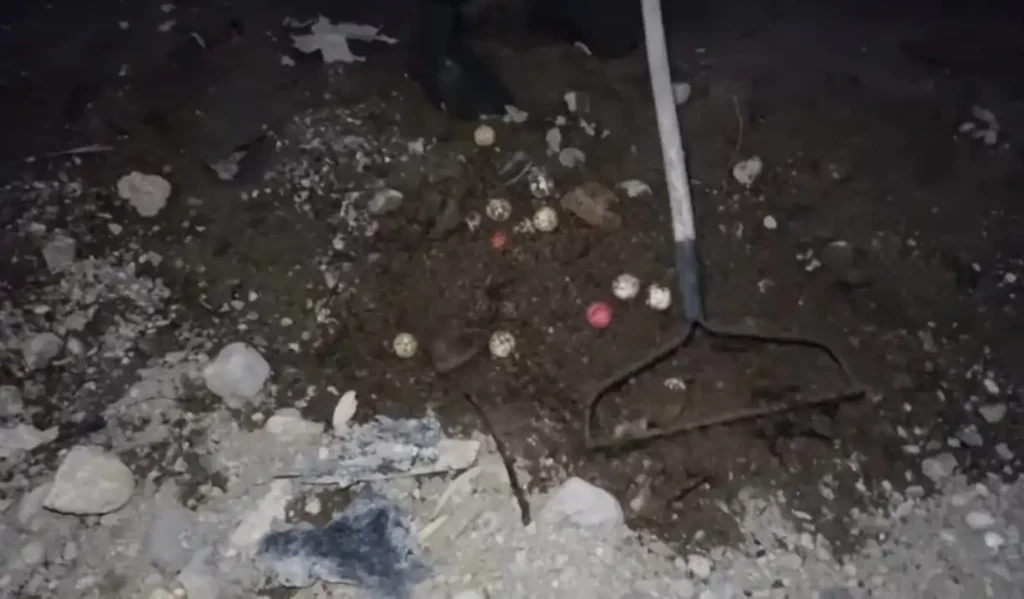
Conclusion
Even the smallest details matter in the elegant game of golf and you can easily improve your skills by understanding these seemingly petty issues. Understanding your golf ball’s lifespan is important; you should be ready for a golf ball to expire early. How do golf balls go bad with age? Do new unused golf balls go bad too? How to improve your golf ball’s longevity? You can keep your balls active for a long time by storing them properly and rotating them constantly. Choose your golf balls with caution if you’re a novice and invest in quality golf balls. Keep your balls hard and fresh, because every stroke counts.
FAQs – Do Golf Balls Go Bad Easily?
Do Golf Balls Go Bad When It’s Blazing Hot?
Yes, extreme temperatures can harm golf balls. When exposed to colder climates they could stiffen and become less flexible affecting distance and performance. So, golf balls should be stored under moderate temperature conditions to preserve their quality and prevent degradation over time.
Do Golf Balls Go Bad If It’s Freezing Cold?
Although golf balls do not directly “go bad” when exposed to colder climates, their performance could be severely altered by it. Colder conditions tend to make balls harder and less elastic which reduces distance as well as tactile feel when struck. So, warm your balls before hitting your shots to help maintain optimal performance.
Do Golf Balls Go Bad Due To Heat Exposure?
Yes, heat can indeed damage golf balls. Elevated temperatures can cause the core to expand at higher speeds than anticipated, leading to inconsistent compression rates and performance issues for your game. So, it’s wise to store them away from extreme environments (for instance, inside your car on sunny days) to preserve their quality and keep you playing your game.
Do Golf Balls Go Bad Even Underwater?
Modern golf balls are constructed to withstand brief encounters with water on the course, such as landing in a water hazard. However, extended submersion or consistent exposure to water may have detrimental repercussions on their performance. So, it’s recommended to replace waterlogged golf balls for optimal play. Read our latest blog about waterlogged golf balls.
Do Golf Balls Go Bad if Not Used For Some Time?
Golf balls have a shelf life after which they become unusable. As we’ve said before, golf balls will go bad after a decade (even if you’re storing them in a freezer, which is an urban legend). So, do new unused golf balls go bad eventually as well? Yes, golf balls will become unplayable after their shelf life (10 years, generally) expires. Today, we possess golf balls from the 1500s as well but they’re not fit for a game.
